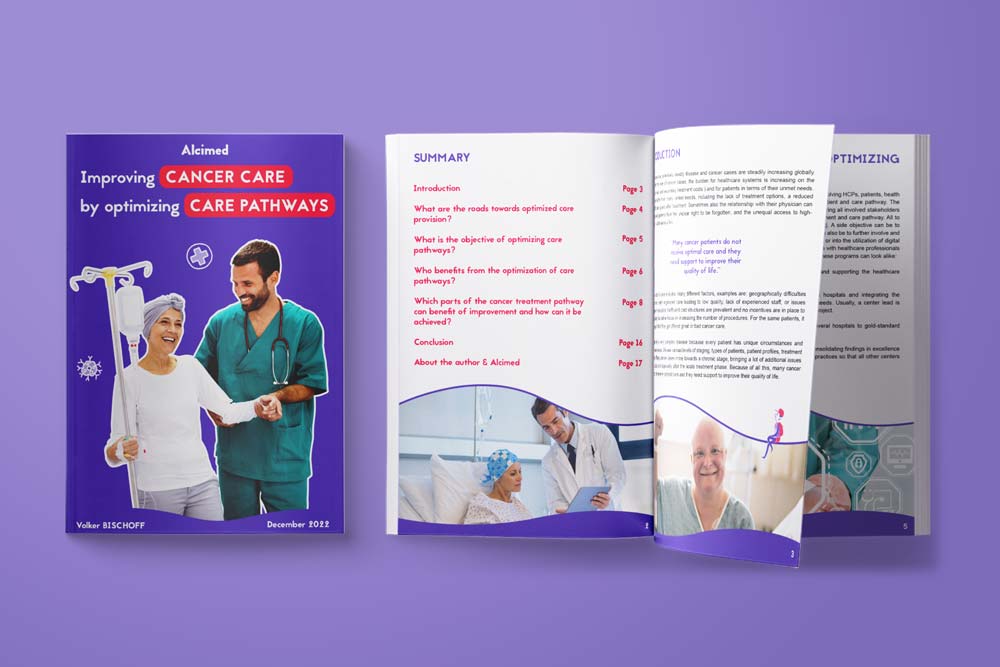Assessment of “companion” tests separated from product assessment for pharma companies
Biological tests required to define the patients’ eligibility to a product have to be evaluated just like the product itself. In France, the testing methods are proposed exclusively by healthcare professionals, through medical societies. A dedicated mechanism built on the same mindset as the temporary use authorization (ATU) is funding the tests which are not included in the nomenclature and are awaiting their assessment by the High Health Authority (HAS).
Then, pharma players can expect that the national lab expert network will be efficient in performing the tests. Indeed, through cancer plans and the National Institute for Cancer (INCa), France has invested in the development of platforms which now possess necessary resources and can be equipped with cutting edge technologies. Meanwhile, the quality standard requirements have been raised. However, pharma players have limited visibility on the development, availability, and assessment of each specific test.
A broad but unequal access to expertise depending on where the patients are treated
The French system therefore, allows access to qualitative and innovative tests but raises questions on how the funding is assigned to each hospital and how the expertise is spread in the country.
Regarding funding, the first complexity resides in the existence of a fixed national budget for innovative tests. The fixed amount of 380 million euros has remained unchanged for 4 years despite a significant increase of the number of innovative tests, partly due to the development of targeted therapies. Thus, testing laboratories prioritize their efforts and carefully select which patient should undergo the tests. In addition, laboratories need to minimize the cost of tests by gathering as many samples as possible before starting the analysis which induces longer delays. Above all, healthcare centers have no visibility on how the budget will be split among them. Tests outside nomenclature are funded retroactively, thus forcing hospitals to pay upfront without knowing what proportion would be reimbursed. To avoid this complexity, patients treated within private facilities for example may be referred to large public hospitals for testing, which leads to redundant medical consultations.
On the other hand, the national lab expert network ensures relevant coverage as it is based on University-affiliated Hospitals (CHU) but does not detail specific expertise in each center. For specific tests that must be performed regularly in order to develop the necessary skills, the expertise availability is difficult to identify at a national level. The communication and development of logistic chains may be perfectly in place or totally absent depending on the region.
The role of pharma industry: relay and support healthcare professionals in accessing innovative tests in oncology
In this context, pharma companies can contribute to facilitating the testing pathway related to a specific product. Healthcare professionals usually expect the sales representatives to support them by relaying the latest information and by connecting peripherical and expert centers.
Indeed, healthcare professionals can take advantage of the territory coverage of pharma companies to spread scientific data and official guidelines as well as expert opinions. Pharma players are also physically present at hospitals to promote the proper use of their products and to improve the patient pathway. Through the organization of meetings between healthcare professionals, they facilitate exchanges at local and regional levels and can contribute beyond products by supporting projects of care pathway organization on a case-by-case basis. To do so, pharma players first need to understand the specific barriers related to the prescription and the performance of the companion test of their product, including determining the role of stakeholders, the existence of expert centers and their possible limitations in patient care.
Beyond screening patients to access one treatment, innovative tests serve the understanding, the risk assessment, and the follow-up of disease progression and will be a prerequisite for the dawn of personalized medicine. On this global topic, pharma players could use their resources in a transversal and coordinated manner in order to truly contribute in improving the overall patient care standards and the access to the best treatment at the best moment.
About the authors
Claire, Senior Consultant, Alcimed Healthcare Paris Office
Maryia, Project Manager, Alcimed Healthcare Paris Office



